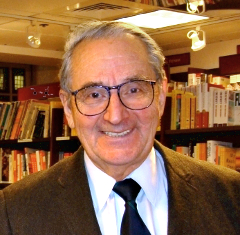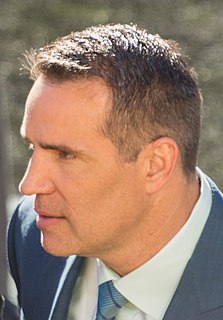A Quote by John Pople
In the war, most young men were inducted into the armed forces at the age of 17. A group of students was permitted to attend university before taking part in wartime research projects.
Related Quotes
By 1954, as an assistant professor with a group of three graduate students, I was able to initiate more complex experimental projects, dealing with the structure, stereochemistry and synthesis of natural products. As a result of the success of this research, I was appointed in 1956, at age twenty-seven, as professor of chemistry.
One of the real costs of the war is that our security is actually less than it otherwise would have been - ironic, since enhancing security was one of the reasons for going to war. Our armed forces have been depleted - we have been wearing out equipment and using up munitions faster than we have been replacing them; the armed forces face difficult problems in recruitment -by any objective measures,including those used by the armed forces, quality has deteriorated significantly.
I do occasionally wonder, if you were to bring to life one of those young men who sacrificed themselves in what was advertised to them as the Great War, and the war to end all war, and show them that we're still engaged in armed conflict in the same area, I'm not sure that they would be pleased about what their sacrifices amounted to.
A psychologist once asked a group of college students to jot down, in thirty seconds, the initials of the people they disliked. Some of the students taking the test could think of only one person. Others listed as many as fourteen. The interesting fact that came out of this bit of research was this: Those who disliked the largest number were themselves the most widely disliked. When we find ourselves continually disliking others, we ought to bring ourselves up short and ask ourselves the question: "What is wrong with me."
The advertising men made it clear that there were two ways of looking at ideas in a war against fascism. Those of us who were working on the project believed ideas were to be fought for; the advertising men believed they were to be sold. The audience, those at home in wartime, were not 'citizens' or 'people.' They were 'customers.'





































